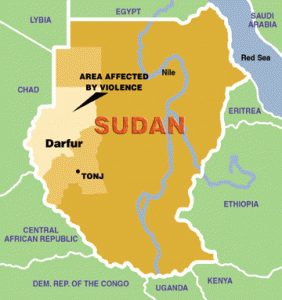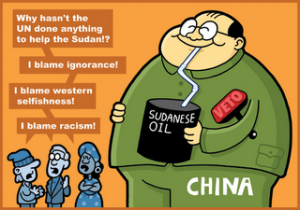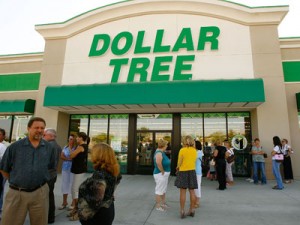Since the mid 19th century, Sudan has been a centre of genocide and crimes against humanity which have gone largely un-noticed by the western world. This small frontier zone between the Arab and African worlds has been in a state of civil conflict for almost 23 years as the Arab Janjaweed militia – with the support of the Sudanese army and air force – has engaged in an ethnic war against the African minorities, killing upwards of 400,00 people [1].

However, amidst all the chao, anarchy, and international sanctions, Sudan was ranked as the world’s 17th fastest growing economy in 2006 and has consistently experienced significant GDP growth [2] – 5.2% growth in 2009, 4.2% in 2008 – which has been fueled almost entirely by immoral trade agreements with The People’s Republic of China.
Since the discovery of oil sands in the province of Darfur, Beijing has invested “millions in [Sudanese] infrastructure” such as “building pipelines, roads, and airfields in oil producing regions” [1]. This investment assures that China can import the majority of Sudanese oil – about 80% of the nation’s yearly output, valued at more than US20$ billion – and creates a stable trading relationship in which Sudan can easily pay not only for vital food imports, but also for new Chinese military hardware [1].

Hmm… I didn’t know Sudan made mounted machine guns!
For many years, “most major oil companies [have] regarded the country as too unstable for investment” [1], but it would appear that China has successfully found a way to extract oil in hostile countries: simply supply the local genocidal regime with tanks, helicopters, machine guns and grenades!
Not only that, but China has “consistently blocked efforts at the UN” to have Sudan’s actions classed as genocide, which prevents the victims suffering in Sudan from receiving much needed protection. China’s “public position is that it abides by all UN arms embargoes” and claims it has “told Sudan’s government not to use Chinese military equipment in Darfur” [3].

In order for military action to be taken by the UN security council, all of the P-5 countries – US, UK, France, Russia, China – must all agree, otherwise one of these five may veto the proposal and impede any action to be taken.
Now although China could argue that it has not directly supported the genocide in Darfur, it’s “economic self-interest” [1] has only fueled the bloodshed. By freely selling arms to a military regime, a choice was made in Beijing that cheap oil is worth the lives of thousands of human beings.
Ultimately this becomes a question of how far companies – not only in China but also the rest of the world – are willing to go in order to maximize profits. There have been countless cases of unethical treatment of workers in huge factories to cut costs, or exporting products containing known carcinogens to unregulated countries in order to simply sell a by-product. But are we beginning to push the limits of maximization to the extent that human lives are sacrificed to save a few dollars on each barrel of oil? If we haven’t stopped destroying wild habitats in order to plant a few more acres of corn, what is there to stop us from clearing out entire human communities in order to cut costs while filling up our cars?
[1] – http://www.taipeitimes.com/News/editorials/archives/2007/04/06/2003355508
[2] – http://en.wikipedia.org/wiki/Sudan
[3] – http://news.bbc.co.uk/2/hi/7503428.stm

 The article writes about the differing views of management minimizing costs while founder Richard Schulze believes that better in-store customer experience is needed to increase revenue. Schulze’s key point of argument: Why research and buy online when you may come in-store and have an employee find a solution that best suits your needs?
The article writes about the differing views of management minimizing costs while founder Richard Schulze believes that better in-store customer experience is needed to increase revenue. Schulze’s key point of argument: Why research and buy online when you may come in-store and have an employee find a solution that best suits your needs? In response to Adrian’s comments that Best Buy’s strategy “would work… if you were Apple”, I believe that he has not considered Apple’s flaws which are Best Buy’s advantages. Apple sells Apple products, they do not sell HP, Dell, or Samsung, nor do they provide mobile devices, cameras, printers, monitors, and pretty much everything else you could ever want. This is the key flaw Best Buy is looking to exploit. If I wanted to buy a Macbook, I can only go to an Apple store, if I want cheaper laptop of equal – most often better – quality, then I have many options available, and Best Buy is smart in looking to develop its customer service to challenge that of Apple and overtake market dominance.
In response to Adrian’s comments that Best Buy’s strategy “would work… if you were Apple”, I believe that he has not considered Apple’s flaws which are Best Buy’s advantages. Apple sells Apple products, they do not sell HP, Dell, or Samsung, nor do they provide mobile devices, cameras, printers, monitors, and pretty much everything else you could ever want. This is the key flaw Best Buy is looking to exploit. If I wanted to buy a Macbook, I can only go to an Apple store, if I want cheaper laptop of equal – most often better – quality, then I have many options available, and Best Buy is smart in looking to develop its customer service to challenge that of Apple and overtake market dominance. This presents Canada with the opportunity to not only strengthen the economy, but begin innovating new ways to decrease our dependence on crude oil. The International Energy Agency (IEA) estimates that approximately one-fifth of the world’s energy demand will be produced by innovative economically viable “green” energy. With reduced dependence, Canada and the US are appropriately positioned within the next decade to take lead in alternative energy innovation.
This presents Canada with the opportunity to not only strengthen the economy, but begin innovating new ways to decrease our dependence on crude oil. The International Energy Agency (IEA) estimates that approximately one-fifth of the world’s energy demand will be produced by innovative economically viable “green” energy. With reduced dependence, Canada and the US are appropriately positioned within the next decade to take lead in alternative energy innovation. I believe that Africa is RIM’s last shot at survival over the next 5 years. With continuously declining sales and massive mounting losses, the company must radically re-strategize before it is too late. By taking advantage of the growing middle class in Africa, RIM can establish itself as the local provider of phone services, and possibly expand to dominate as the largest network provider. Especially in a place like Nigeria, the price of monthly mobile phone service – with unlimited access to BBM, Facebook, and Twitter – is cheaper than regular internet access subscription.
I believe that Africa is RIM’s last shot at survival over the next 5 years. With continuously declining sales and massive mounting losses, the company must radically re-strategize before it is too late. By taking advantage of the growing middle class in Africa, RIM can establish itself as the local provider of phone services, and possibly expand to dominate as the largest network provider. Especially in a place like Nigeria, the price of monthly mobile phone service – with unlimited access to BBM, Facebook, and Twitter – is cheaper than regular internet access subscription. This not only has farmers excited, but investors as well. The increasing land prices within central Canada have caught the eyes of international investors, however they may not all be so welcome to buy as land is seen as a natural resource. Saskatchewan has strict regulations, limiting foreign investors to only buy 10-40 acres of land. Although seemingly harsh, this may actually only strengthen the Canadian economy as investors put their money back into Canadian assets, strengthening the economic recovery.
This not only has farmers excited, but investors as well. The increasing land prices within central Canada have caught the eyes of international investors, however they may not all be so welcome to buy as land is seen as a natural resource. Saskatchewan has strict regulations, limiting foreign investors to only buy 10-40 acres of land. Although seemingly harsh, this may actually only strengthen the Canadian economy as investors put their money back into Canadian assets, strengthening the economic recovery.




